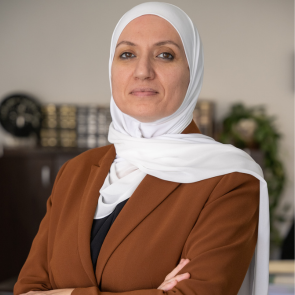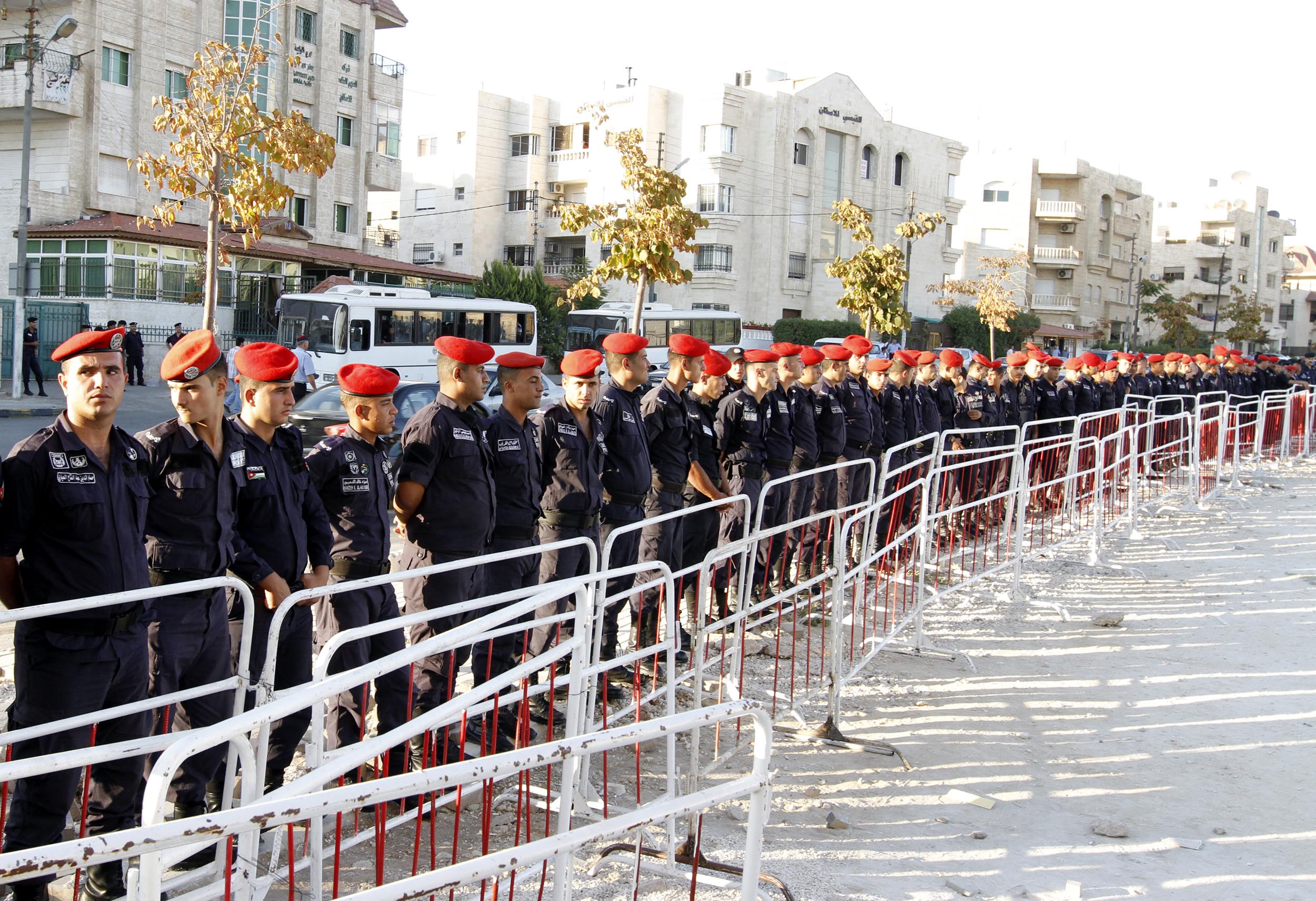
The annual Front Line Defenders Award for Human Rights Defenders at Risk was established in 2005 to honour the work of HRDs who are courageously making outstanding contributions to the promotion and protection of the human rights of others, often at great personal risk to themselves.
Hala Ahed is a Jordanian woman human rights defender and lawyer. Born in December 1971 in Kuwait, Hala moved to Amman, Jordan when she was 10 years old, and has lived there since. Hala has conducted significant work in the human rights landscape in Jordan, and is well recognised in civil society as a trusted leader and ally. The focus of her work has been women’s rights, but within the political context of Jordan, she has also worked across freedom of opinion and expression, labour rights, and trade union freedoms.
Since the Arab Spring in 2011, grass roots protests and dissent have emerged in Jordan, reflecting growing discontent with government corruption and wealth inequality, among other issues. The government has long-established ‘red lines’ for dissent and opposition, and uses methods of intimidation and punishment as a means to maintain ‘stability’ in the country, creating a hostile environment within which human rights defenders work. Arbitrary arrests and surveillance of human rights defenders has increased, as well as severe restrictions on freedom of opinion and expression. Civil society is regularly monitored, surveilled and silenced.
Hala’s interest in human rights began during her school years, driven by her lived experience as a woman living in a society where discrimination against women is still a norm. Women in Jordan still battle with receiving the same equitable rights, access, protection and opportunities as men. In wanting to pave a way for her own rights as a woman, she realised she could pave a way for a whole generation of other women.
After completing her Bachelor of Laws at the Al-Ahliyya Amman University, she became a trainee lawyer at the Jordanian Bar Association where she actively worked on the Freedoms and Human Rights Committee. Before actually practising as a lawyer, she went on to work with different organisations (including the Jordanian Women’s Union); using advocacy, campaigns, and training to address trafficking of women and girls, domestic violence, and discriminatory laws.
Despite her vital work and advocacy, Hala has endured various forms of intimidation and harassment, including being summoned multiple times by the Jordanian General Intelligence Directorate (GID). She has recieved threats from authorities who have gone as far as threatening her son in order to get to her. Hala grew her public legitimacy by increasing her visibility and public profile, and building a support network which has given her public credibility.
Most recently, Hala was a victim of NSO’s Pegasus digital hacking spyware initiated by the government. It was found that she was being surveilled when her mobile device was infected with Pegasus in March 2021. In other instances, Hala was targeted with online defamation campaigns where government-backed social media accounts would storm her account with harassment. Over the years as a lawyer, Hala represented and defended human rights defenders, activists, rights movements, civil society organisations and trade unions, making herself known as a strong ally for civil society in Jordan. She supported multiple unions with voluntary legal representation, including the Jordan Teachers’ Syndicate which represents more than 14,000 teachers; and the Agricultural Association. Her human rights work goes beyond the realms of her desk and books. Despite all the obstacles, dangers and restrictions she faces for her human rights work, Hala continues to be dedicated in her pursuit of improving the human rights situation in Jordan for all. She is celebrated nationally as a leading woman human rights defender and has received multiple tributes for her work from various human rights groups and organisations, locally and abroad.

